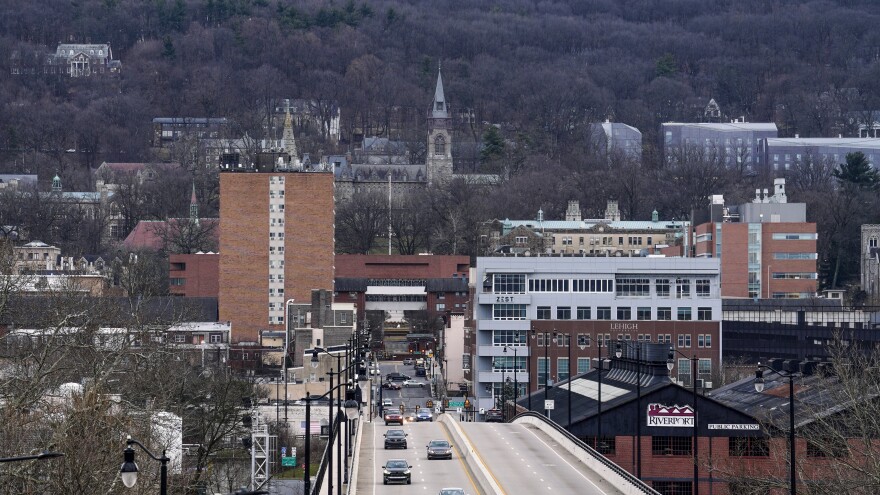BETHLEHEM, Pa. — The City of Bethlehem is in strong financial shape, Mayor J. William Reynolds said in his State of the City address Thursday, thanks to increasing tax revenue, falling debt and a wave of new investment.
“We need to start with what has been the centerpiece of our story over the past 20, 25 years since Bethlehem Steel closed, and that's that our finances in the city of Bethlehem in the private and public sector are stronger than ever,” Reynolds said.
When the company closed its doors more than two decades ago, its departure left a gaping hole in the city’s budget, which officials borrowed money to fill.
Since he took office, Reynolds has focused his administration on paying down that lingering debt by “making difficult decisions,” he said.
“We have not been putting that off for the next generation,” Reynolds said. “Which is going to place us in a position in those 2028, 2029, 2030 budgets where we will be able to make investments in our city that cities generally aren't able to make.”
Revenue from the city’s earned income tax has steadily risen over the past four years, which officials attributed to persistent investment and successful development.
The city still owes more than $99 million to its creditors, more than the roughly $90 million of revenue it saw last year.
But according to the city’s projections, Reynolds said, Bethlehem’s annual revenue will exceed its overall debt in 2025 for the first time in the post-Steel era.
“The tide is turning; the tide hasn't turned yet."Bethlehem Mayor J. William Reynolds
“The tide is turning; the tide hasn't turned yet,” he said.
Strengthening the city’s balance sheet, Bethlehem spent $1.1 million less than budgeted last year on employee healthcare, a sharp contrast with the $923,000 overage recorded in 2022.
Officials attributed much of Bethlehem’s growth and financial stability to new investment in the city, funded both by private companies and public grant programs.
“We can measure private sector investment by the building permits issued and the construction value of the projects for which those permits were issued,” said Laura Collins, the city’s director of community and economic development. “Using that measure, in 2023 alone, the private sector invested $250 million into the City of Bethlehem.”
While some of those permits were issued to private homeowners building decks or similar improvements, she said. “The vast majority of this private sector investment is in commercial construction — major projects with major impacts.”
Last year, the Bethlehem Planning Commission reviewed plans for 2.4 million square feet of new commercial space, said Collins, including a new hotel at Lehigh Valley Industrial Park VII on E. Fourth St., new medical offices at the former Martin Tower site, and a new ArtsQuest cultural center to replace the Banana Factory.
Along with private sector investment, officials touted millions of dollars of grant money supporting projects in the city.
Reynolds announced Thursday that an overhaul of Friendship Park as part of the city’s Northside Alive initiative recently received a $750,000 grant from the National Park Service. The $1.4 million project was already awarded $550,000 of public funds through two other programs, he said.
“Construction is going to start later on this year, hopefully in the Fall, and we're going to completely transform this park,” Reynolds said.
In one of the largest awards of last year, planned improvements to a section of W. Broad St. received nearly $10 million from a U.S. Department of Transportation program.
Money from the American Rescue Plan, on the other hand, is dwindling.
Officials set aside $3 million of their $34.4 million ARP allocation to create the Community Recovery Fund, which offers $10,000-$50,000 grants to organizations serving the city.
In the first $750,000 round of grants, the city selected 27 recipients. Applications for the second round of grants opened last month and will close on April 30.


